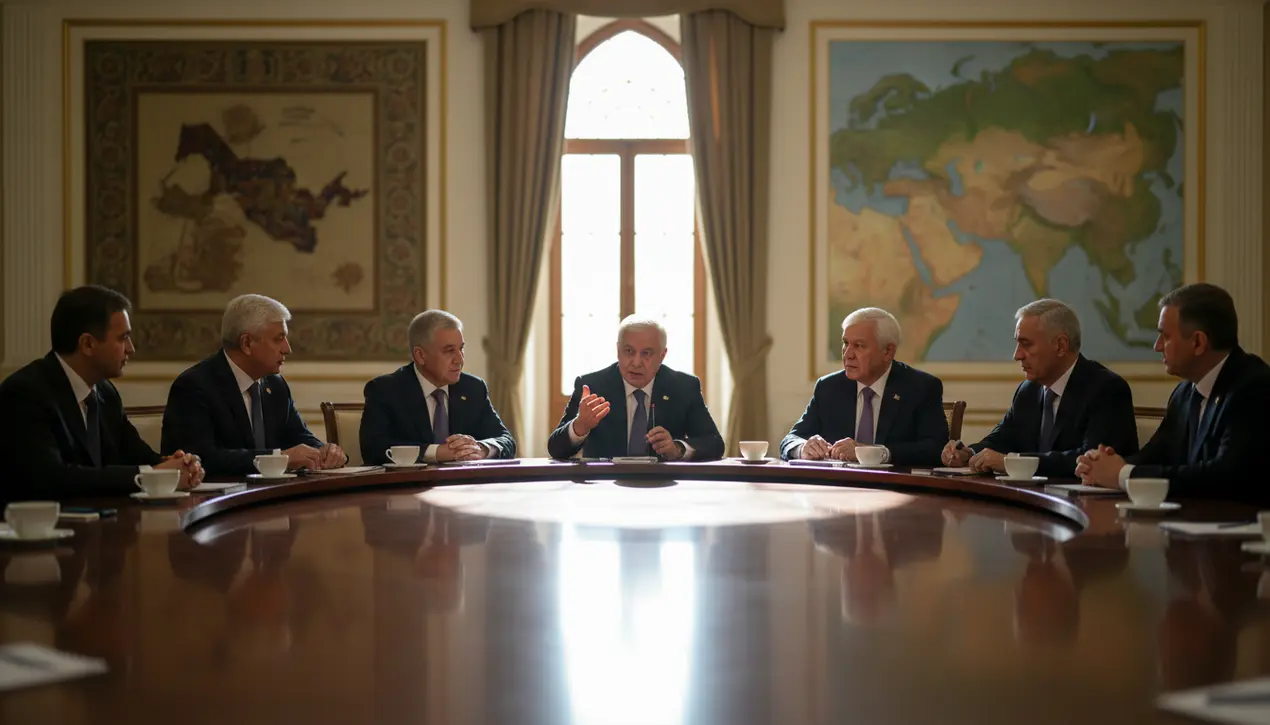
PoliticsdiplomacyBilateral Relations
Central Asian and South Caucasus leaders strengthen ties at summit.
RO
Robert Hayes
2 hours ago7 min read
In a move echoing the grand diplomatic assemblies of a bygone era, the leaders of Central Asia, joined by Azerbaijan from the South Caucasus, converged on Tashkent for a summit of profound geopolitical significance. This was not merely a ceremonial gathering; it was a concerted push to forge a new architecture of regional integration, one built upon the twin pillars of hardened security cooperation and robust economic interdependence.The very location, Uzbekistan’s historic capital, a city that once served as a crucial nexus on the Silk Road, lent a symbolic weight to the proceedings, hinting at ambitions to resurrect the region’s role as a continental crossroads. The agenda was deliberately ambitious, extending beyond the typical memoranda of understanding to include discussions on establishing new, permanent institutions capable of coordinating policy on everything from counter-terrorism to cross-border infrastructure.One can draw a parallel to the post-war European Coal and Steel Community, a humble beginning that sought to tether former adversaries through shared economic interest, ultimately paving the way for a larger political project. The presence of Azerbaijan, a nation strategically perched on the Caspian Sea with its vast energy resources and recent military ascendancy, adds a critical and complex dimension, effectively bridging the Central Asian and South Caucasian spheres of influence.Analysts watching the closed-door sessions suggest the underlying impetus is a collective desire to present a unified front in an increasingly multipolar world, where the attentions of traditional patrons like Russia are divided and the economic overtures from China come with their own set of strings. A senior fellow from the Carnegie Endowment for International Peace, speaking on background, noted, 'This is a pragmatic recalibration.These states are not seeking to replace old alliances but to diversify their options and enhance their collective bargaining power. The creation of new institutional frameworks is a clear signal that they are serious about writing their own chapter in Eurasian affairs, rather than having it written for them.' The consequences of this Tashkent consensus could be far-reaching, potentially altering energy transit routes, reshaping security dynamics vis-à-vis Afghanistan, and challenging the existing regional organizations that have often been criticized as ineffectual. The path forward is fraught with the historical baggage of border disputes and internal political challenges, but the determined tone emanating from Tashkent suggests a watershed moment may be at hand, one where the heart of Eurasia begins to assert its own agency with a clarity and cohesion not seen in decades.
#Central Asia
#South Caucasus
#Tashkent summit
#regional integration
#economic ties
#security cooperation
#featured
Stay Informed. Act Smarter.
Get weekly highlights, major headlines, and expert insights — then put your knowledge to work in our live prediction markets.
Related News
Comments
Loading comments...
© 2025 Outpoll Service LTD. All rights reserved.